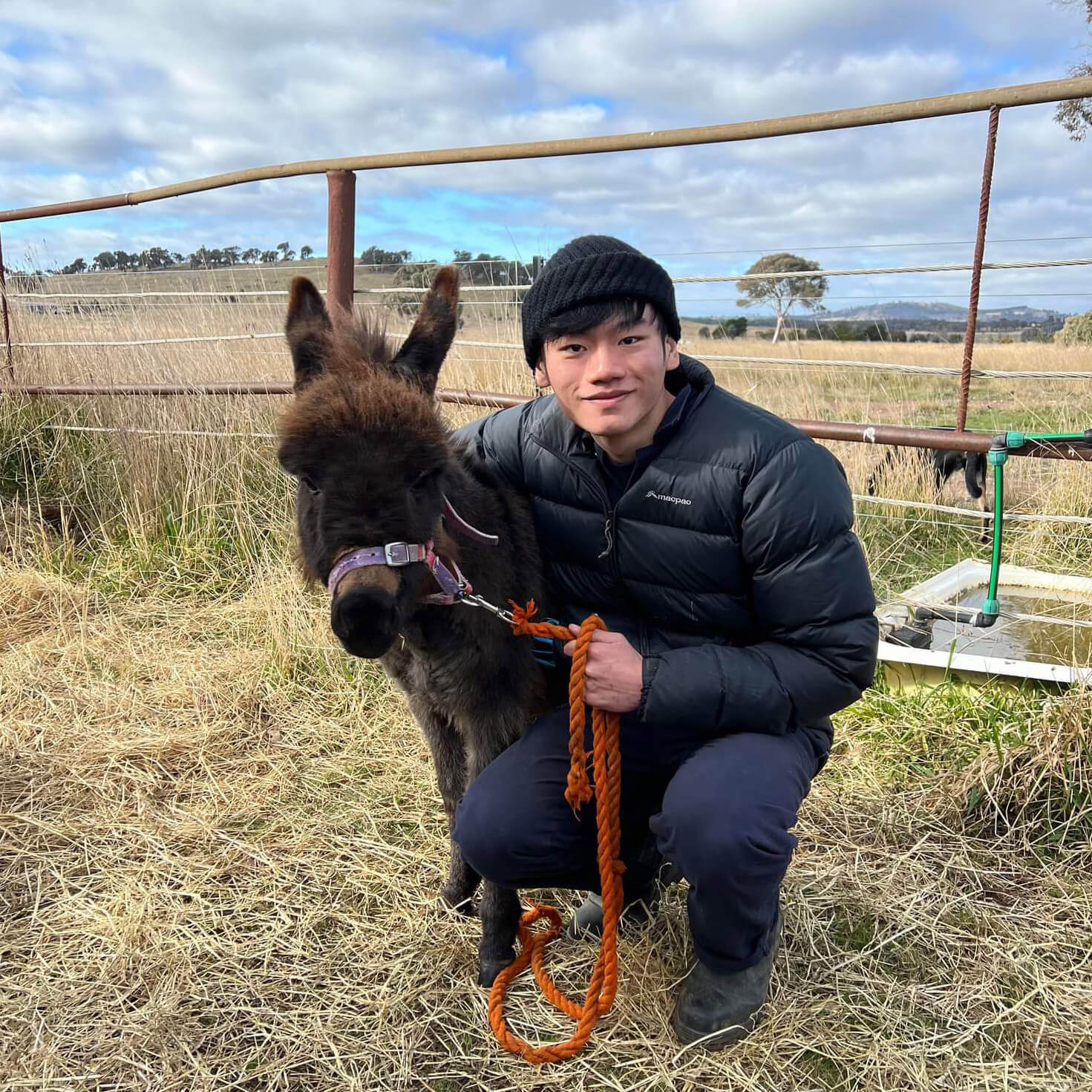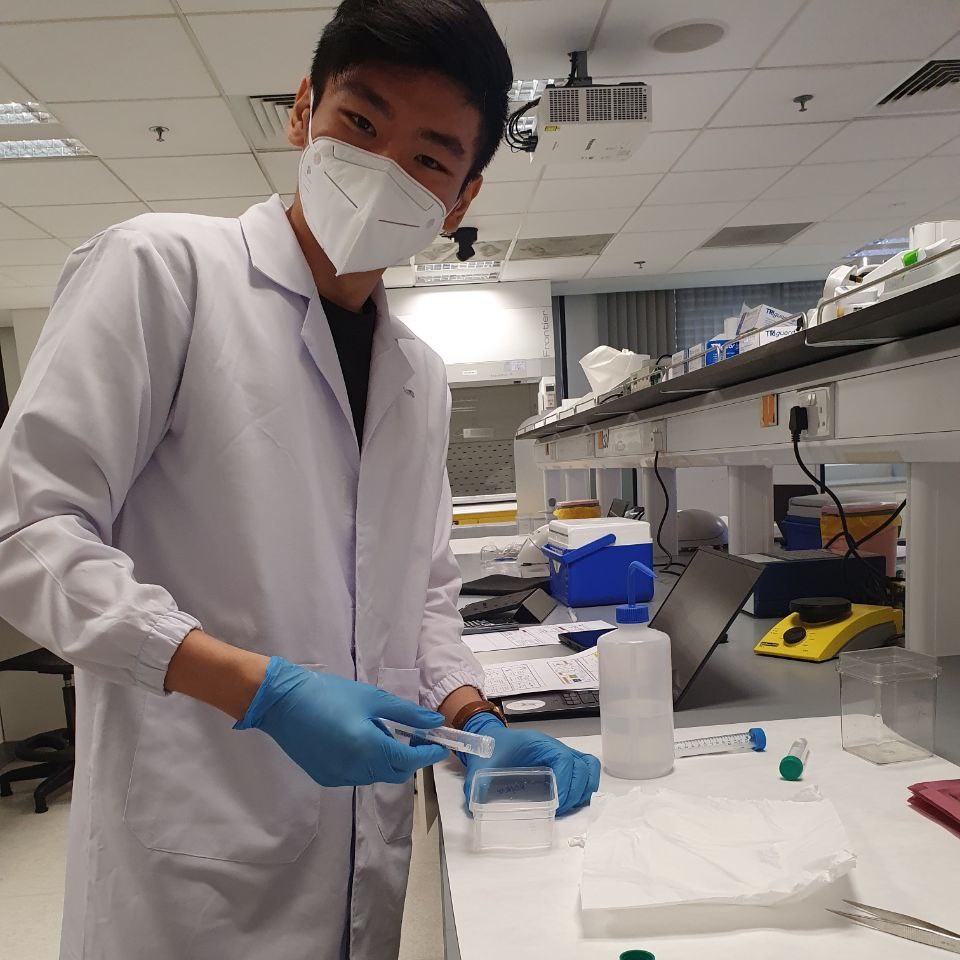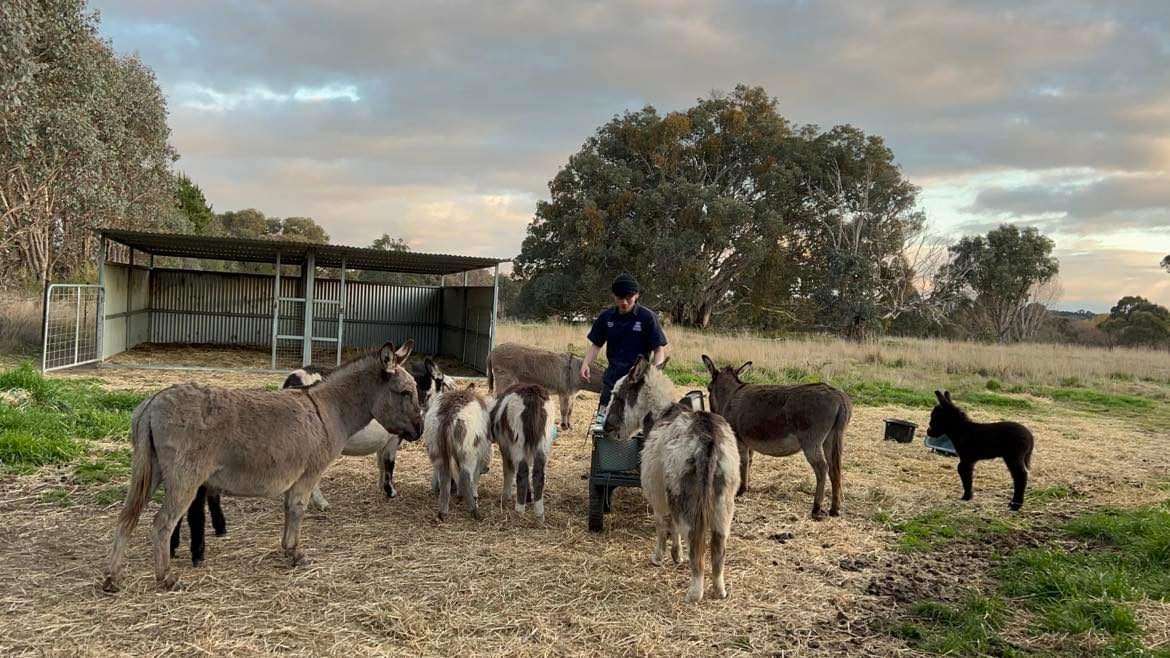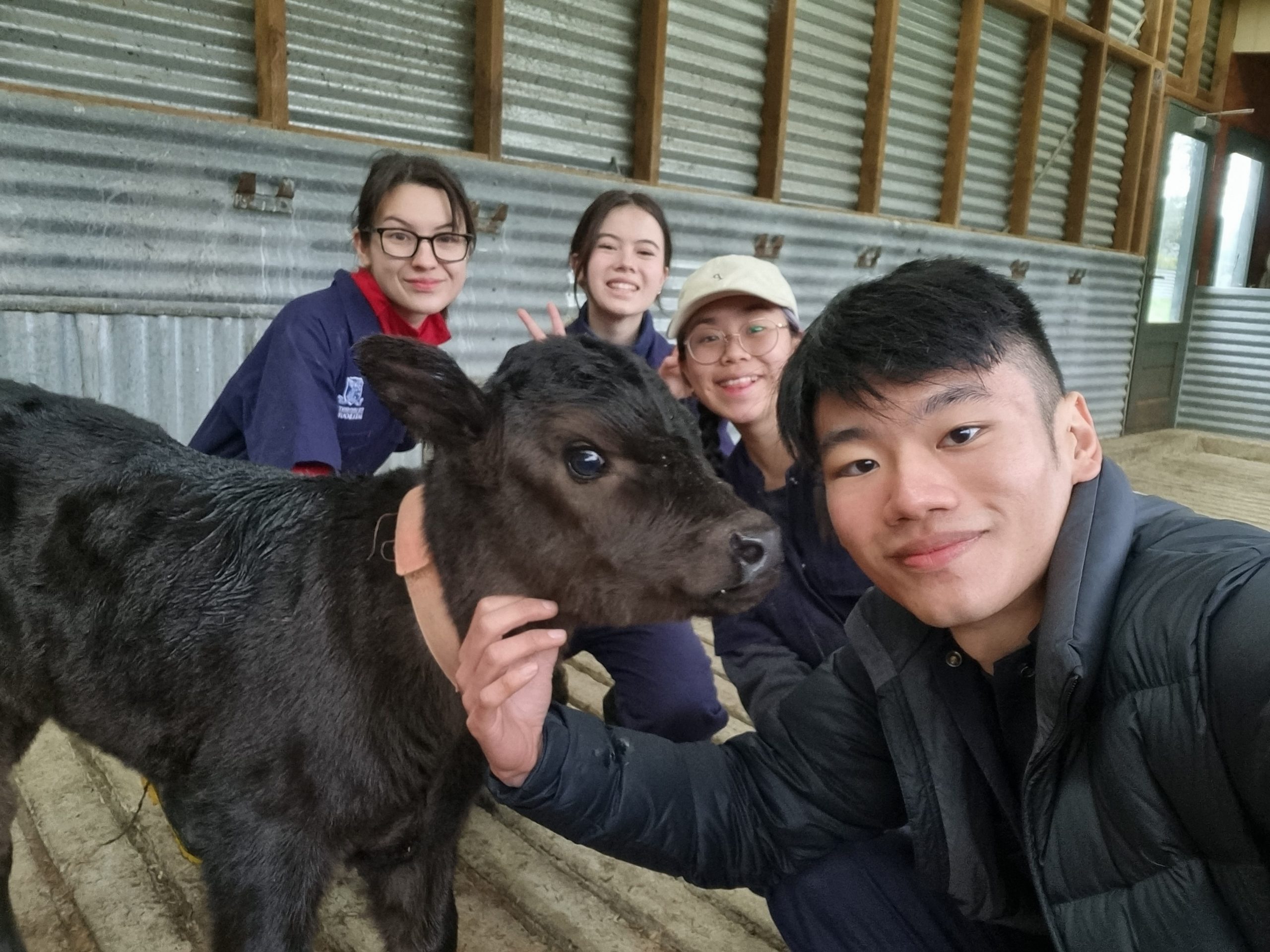Celebrating the human-animal bond
August 4, 2022

Many people ask Life Sciences student Ryan ONG what it is like to be a student seeking to become a veterinarian. Of course, an aspiring veterinarian must have compassion for animals, and interest in their welfare, but beyond that, what really makes Ryan ‘tick’ (pun intended)?
He says, “My goal is to become a veterinarian who is actively involved in animal welfare, particularly in improving the quality of life of animals living in dense housing.”
To pursue his dream, Ryan is reading the Concurrent Degree Programme (CDP) in Life Sciences, Faculty of Science (FOS) and the University of Melbourne (UoMelb) Doctor of Veterinary Medicine, the first course of its kind in Singapore.
Here, he shares insights from his studies which cut across basic, clinical and applied research, pharmacology and public health, as well as General Education modules.

He says, “Veterinary science requires understanding of multifaceted issues” that stem from the inextricable link between animals and people, such as prevention of foodborne diseases, disease surveillance and control and animal wellbeing and health, to name just a few.
The study abroad programme has provided him numerous opportunities to apply and build upon the intellectual foundations and skills he acquired at FOS. For instance, learning about biochemistry and human anatomy at FOS allowed him to “transplant” some of this knowledge over to veterinary medicine. For instance, did you know that both humans and animals have a frontal bone in their skulls?

He cites placements with the local students at a donkey stud and at a beef enterprise as memorable highlights. At the donkey stud, he helped at an enterprise that breeds miniature donkeys as pets. Ryan thoroughly enjoyed the time he spent feeding and scratching the donkeys and showering them with love. He and his team mates also trained them to accustom them to being handled.

At the beef enterprise, Ryan participated in efforts to educate children on environmental sustainability. He also fed the calves, ensured they were vaccinated against parasites, and improved the facility for the welfare of the cows and their calves.
A steadfast animal lover, Ryan took up the Undergraduate Professional Internship Programme (UPIP) during the summer break in 2021 at the Animal Management Centre, National Parks Board (NParks) where he contributed to husbandry work, treated sick animals and assisted the veterinarians with procedures like physical examinations.
He also trained cats to increase their adoptability, created a diagnostic cheat sheet to aid workers and interns in recognising the symptoms of common shelter infectious diseases like cat flu, and produced a poster on the common misconceptions on cat care as well as a cleaning and disinfecting guide to prevent the transmission of infectious diseases within the centre.
On his overseas exposure in Melbourne, Ryan says he has become more confident and learnt to live in the moment. “I am now more open to trying out new things and experiences. Adapting to a different culture compelled me to move away from autopilot mode in my comfort zone in Singapore.”
Watch as Ryan brings us on a virtual tour of collaborative learning spaces and the laboratory for animal dissection at UoMelb.

